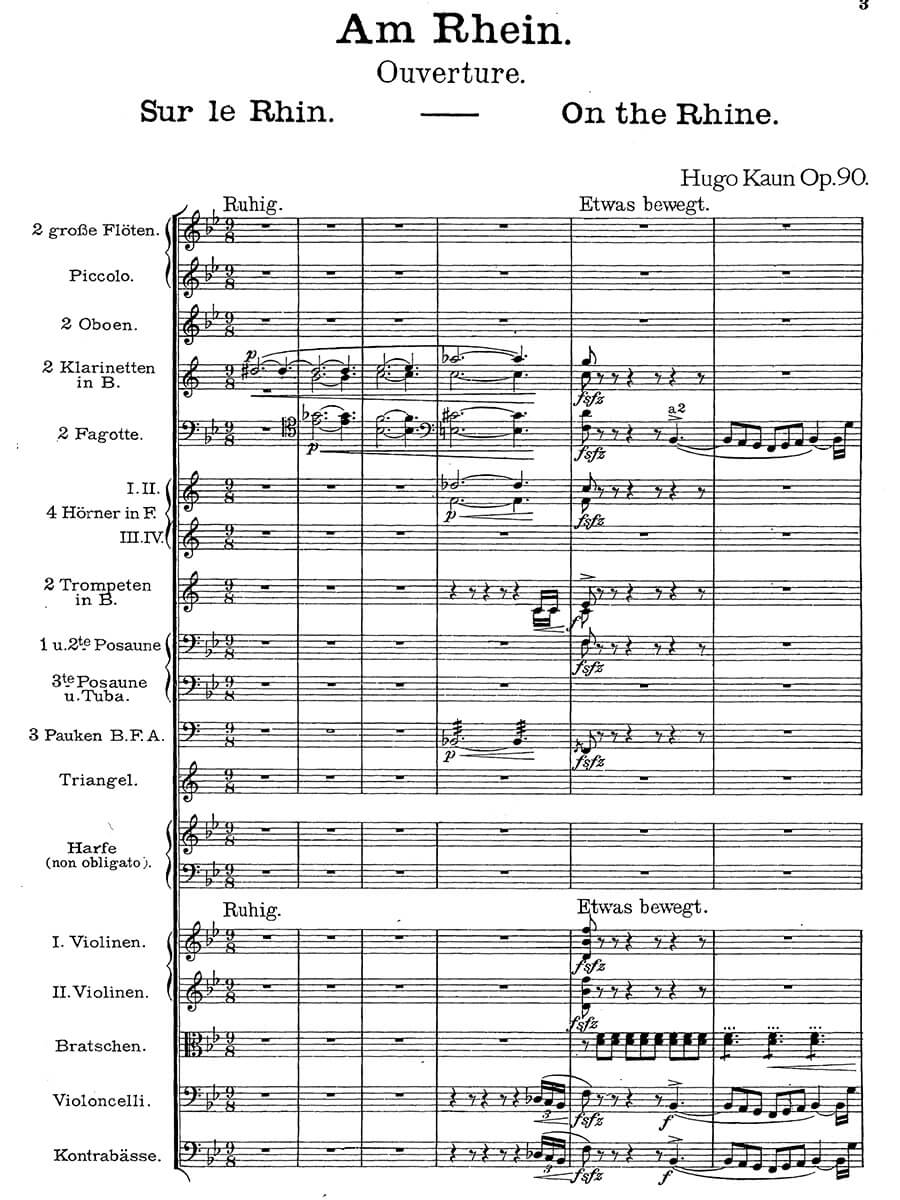Am Rhein: Eine Wanderung fröhlicher Gesellen in B-flat major Op.90 , overture for grand orchestra
Kaun, Hugo
23,00 €
Preface
Wilhelm Ludwig Hugo Kaun – Am Rhein: Eine Wanderung Fröhlicher Gesellen
(b. Berlin, Germany, 21 March 1863 – d. Berlin, Germany, 2 April 1932)
Ouverture für grosses Orchester,
op. 90 in B-flat major
(1912)
World premiere: 31 January 1913 by the Chicago Symphony, Frederick Stock, conductor
as On the Rhine (Wanderings of Jolly Fellows), op. 90
Published: Leipzig: Wilhelm Zimmerman, 1912. Plate Z. 5277; dedicated to Herrn Professor
Karl Panzer (1866-1923), conductor of the Berlin Mozart Orchestra (from 1907) and
Düsseldorf Symphony Orchestra (from 1908; leading Mahler’s 8th in December 1912)
Frühe Jahre (1863-1884)
The composer, conductor, and teacher Wilhelm Ludwig Hugo Kaun grew up at Blumenstraße 34a and 43 in the Friedrichshain neighborhood of central Berlin, one block from the Strausberger Platz, near the Weberwiese (weaver’s meadow). His father Johann Ludwig Kaun (1830-1886) married into the prominent Kräutlein family of cloth manufacturers; his mother Emma Albertine Wilhelmine (1841-1926) was Ludwig’s second wife and the granddaughter of a guild master: the couple was noted for having excellent voices. Hugo was the eldest brother of his seven with one older half-sister from Ludwig’s first marriage. Only four of the brothers survived a year past infancy: Richard became a low bass singer (with a range extending to contra B-flat), George built pianos for Carl Bechstein, and William (Willy) founded the William Kaun Music Company in Milwaukee, Wisconsin, United States.
By the age of thirteen, Hugo Kaun had already written nearly 100 compositions. He began to take private lessons (1876-1879) with instructors at the newly founded Königliche Hochschule für Musik (now part of the Universität der Künste, Berlin), and enrolled in as a full-time student (1879-1880). He later remarked that his main teachers (Friedrich Grabau, piano and Franz Schultz, counterpoint), taught at a level Kaun had already surpassed: this caused him to lose interest in the institution, so when he was later expelled from the university, he saw it as an opportunity. Kaun moved on to study piano privately with Karl Raif and his son Oskar Raif, who became an influential pedagogue. …
Read full preface / Das ganze Vorwort lesen> HERE
Score Data
| Edition | Repertoire Explorer |
|---|---|
| Genre | Orchestra |
| Size | 210 x 297 mm |
| Printing | Reprint |
| Pages | 66 |
